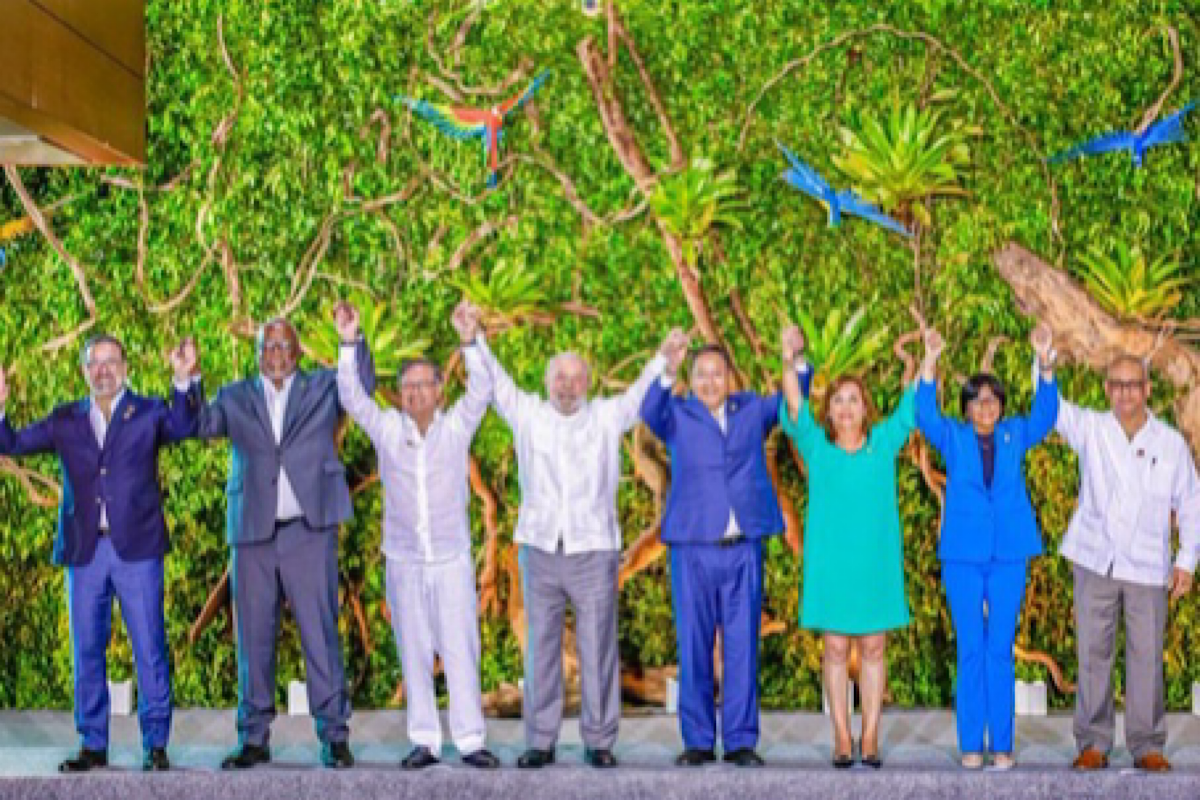The eight countries that share the Amazon basin have fallen short of an agreed goal to end deforestation, leaving each nation to pursue its own conservation goals.
Delegates from Brazil, Bolivia, Colombia, Ecuador, Guyana, Peru, Suriname and Venezuela have assembled in the Braziliancity of Belem for a two-day summit on the issue, the first such gathering in 14 years, reports the BBC.
Advertisement
A joint statement on Tuesday, named the Belem declaration, created a new alliance to combat deforestation, but left each country to pursue its own conservation goals.
It also said the new alliance would aim to “prevent the Amazon from reaching a point of no return”.
The statement also included commitments to enhance co-operation on issues like water management, health, sustainable development and common negotiating positions at global climate summits.
Addressing the “severe worsening of the climate crisis” in his opening speech at the summit on Tuesday, Brazilian President Luiz Inácio Lula da Silva said “the challenges of our era, and the opportunities arising from them, demand we act in unison”.
“It has never been so urgent,” the BBC quoted the President as saying.
Differences in opinion however, was witnessed at the summit.
While Colombian President Gustavo Petro wants other countries to match his pledge to ban new oil exploration, Brazil is considering exploring new areas at the mouth of the Amazon river.
The summit came less than a week after it was revealed that the level of deforestation in the Amazon rainforest in Brazil has dropped to its lowest since 2017.
According to the data shared by the Brazilian space agency Inpe on Aug 3, 500 sq km of rainforest were cleared the country last month which was 66 per cent less compared to July 2022, reports the BBC.
Inpe said that the area of forest cut down in the first seven months of 2023 was smaller than that razed in the same period in 2022.
When President Lula took office in January, he had promised to halt the damage done during his predecessor Jair Bolsonaro’s four-year term.
Bolsonaro had promoted mining in indigenous lands in the Amazon and forest clearances soared at the same time as resources to protect the forest were cut.
Preserving the Amazon is a central part of efforts to tackle climate change.
The rainforest is a crucial buffer in the global fight against climate change and 60 per cent of it is located in Brazil.
The billions of trees that make up the Amazon, often called “the lungs of the planet”, hold vast amounts of carbon, accumulated over centuries, and every year their leaves continue to absorb carbon dioxide that would otherwise remain in the atmosphere and contribute to the rise in global temperatures.









